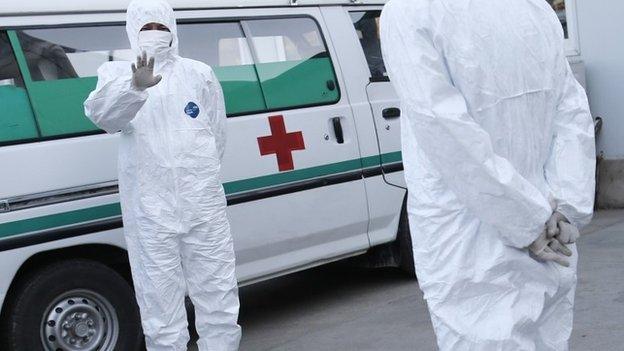Pyongyang marathon: Fewer foreigners compete in North Korea's annual race
- Published
The annual race marks North Korean founder Kim Il-sung's birth
Several hundred foreign amateurs have competed in the Pyongyang marathon, but turnout was half that of last year.
The annual race is part of celebrations marking North Korean founder Kim Il-sung's birth in 1912.
A US travel ban and fears of nuclear war seem to have cut numbers - the marathon is usually the peak time for Western tourists to visit.
There were 429 foreigners competing on Sunday, compared to more than 1,000 who raced in 2017.
At its peak, over 5,000 Western tourists reportedly used to travel to North Korea annually, a fifth of whom were American.
But the US imposed a travel ban last year after the death of Otto Warmbier, an American who was detained and held in North Korea for 17 months after travelling there on holiday. He returned to America in June 2017 in a coma and died shortly afterwards.
The marathon started in the Kim Il-sung stadium before wending its way past major landmarks in North Korea's capital, such as Kim Il-sung Square and the new development project, Mirae Street.
North Korean Ri Kang-bom won the men's full marathon in two hours, 12 minutes and 53 seconds.
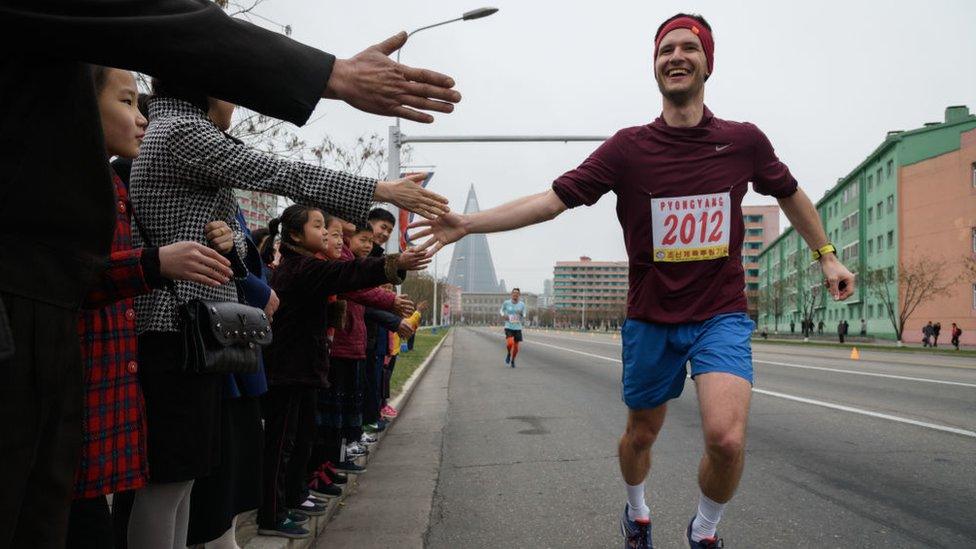
North Koreans turned out to cheer on competitors in Pyongyang
"I'm glad that I was able to fulfil the expectations of the people," Mr Ri said.
Professional runners, including 13 competitors from African countries, ran in this elite category.
The women's full marathon was won by North Korea's Kim Hye-gyong with a time of two hours, 27 minutes and 24 seconds. Her twin sister, Kim Hye-song, came a close second.
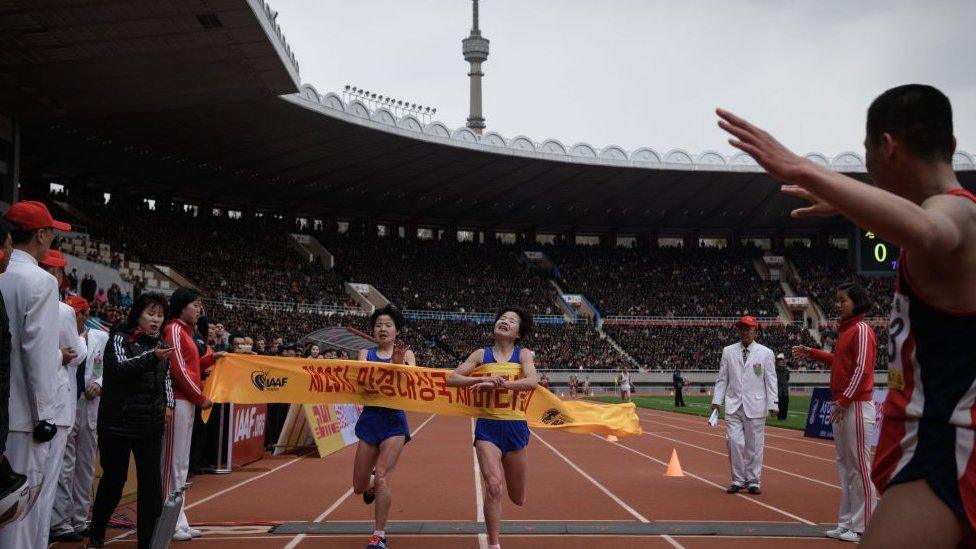
Kim Hye-gyong, right, narrowly beat her twin Kim Hye-song in the women's professional marathon
The race is officially named the Mangyongdae Prize International Marathon.
Both the Association of International Marathons and Distance Races and the International Association of Athletic Federations accredited this year's race, with the latter classifying it as a Bronze Label Road Race.
Pyongyang began allowing foreign amateurs to run in 2014, and the event has since boosted tourism.
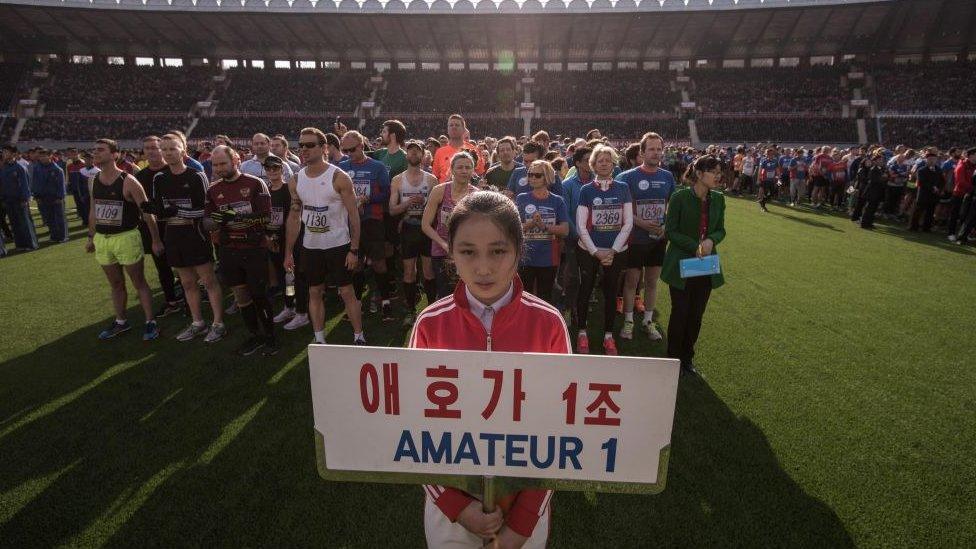
There were 429 foreign amateurs competing in Pyongyang's annual marathon this year, less than half 2017's number
Tensions between the US and North Korea seem to have weighed on prospective entrants minds, but recent moves by North Korean leader Kim Jong-un to calm the situation on the Korean peninsula - especially since the Winter Olympics in South Korea in February - appears to have dispelled some competitors' fears.
Travel agencies said they had seen an increase in marathon interest from tourists in recent months.
Matt Kulesza of Young Pioneer Tours, the tourism group that brought Otto Warmbier to North Korea, said although the number of marathon customers was down compared to last year, overall tourist numbers for 2018 remained on target.
"With so much positive talk of the DPRK in the media, maybe that aura of mystery, that aura of danger is almost disappearing," he said.
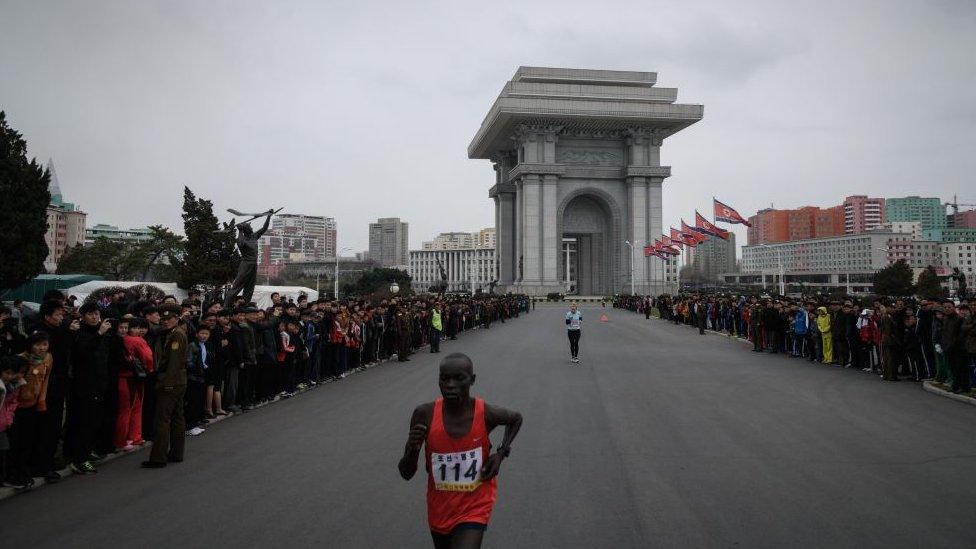
Competitors ran past Pyongyang's Arch of Triumph near the end of the race
But British student Callum McCulloch, who ran the half marathon, told the AFP news agency he was earning "bragging rights" by travelling to North Korea against government advice.
The 23-year-old described Pyongyang as "like the set of a Wes Anderson film", adding: "If someone tells you not to go somewhere, not to do something, that makes you more want to go there, surely."
- Published20 June 2017
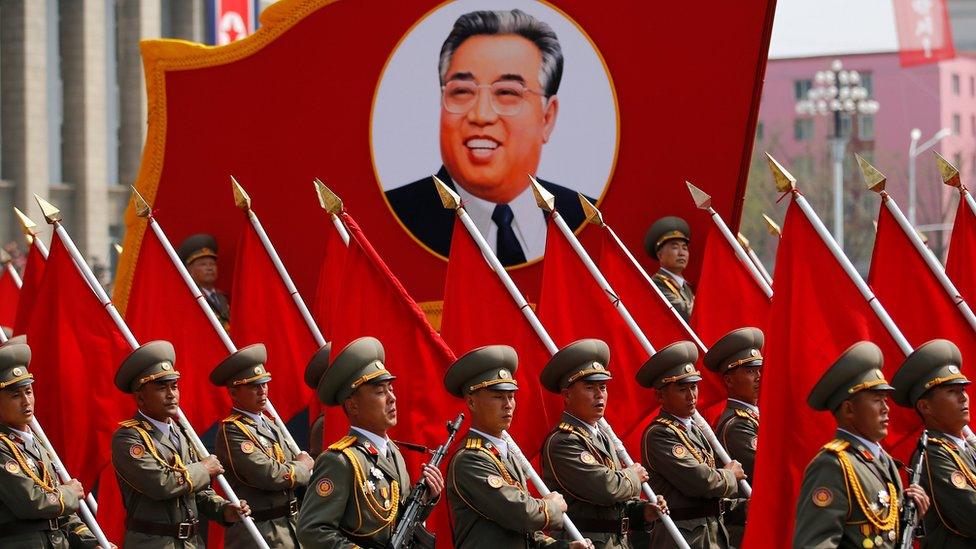
- Published1 September 2017
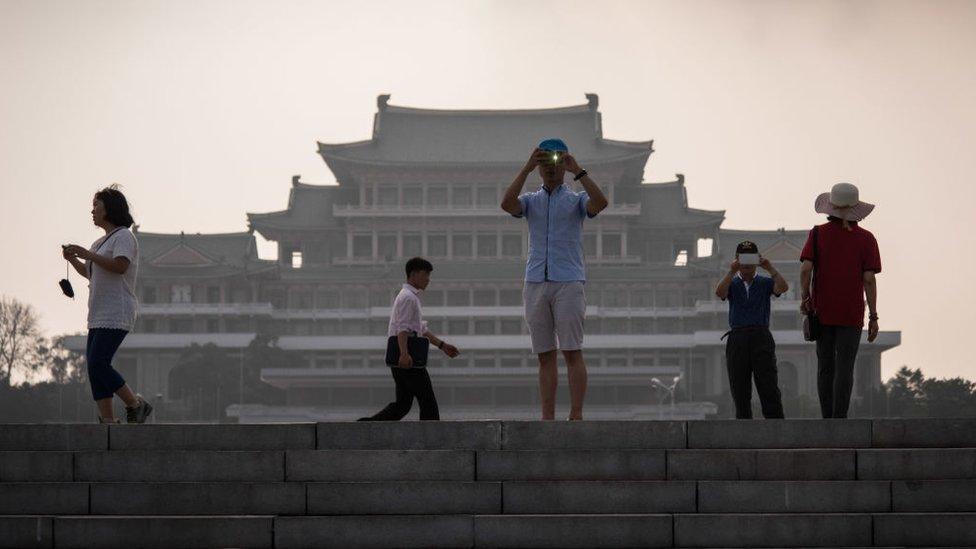
- Published23 February 2015
